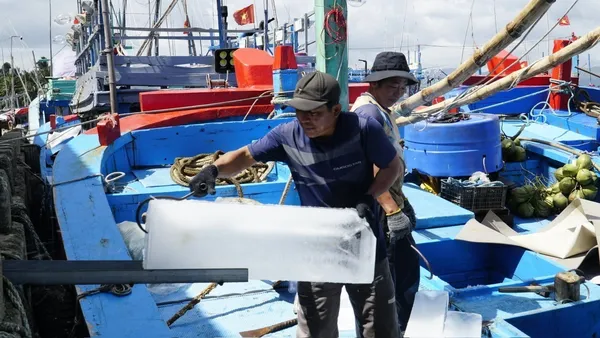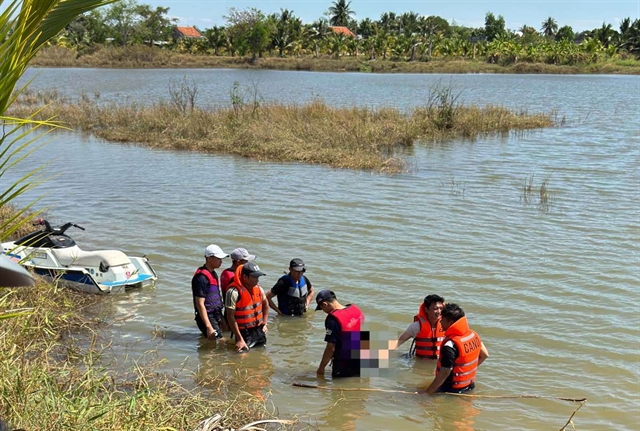 Society
Society

Drones are being used on a trial basis to spray crop protection chemicals in the Mekong Delta provinces of Đồng Tháp and Long An under the region’s high-tech agricultural programmes.

|
| An automatic salinity and water monitor system made by the Institute for Nanotechnology under the Việt Nam National University-HCM City. — VNS Photo Gia Lộc |
HCM CITY — Drones are being used on a trial basis to spray crop protection chemicals in the Mekong Delta provinces of Đồng Tháp and Long An under the region’s high-tech agricultural programmes.
Đồng Tháp Province’s Department of Agriculture and Rural Development is using them to spray rice fields.
Besides, 8ha of paddy rice fields belonging to members at An Long Hi-Tech Agricultural Co-operative in Long An Province’s Đức Hòa District are also being sprayed.
According to a team researching the use of drones in agriculture at the University of Technology under the Việt Nam National University-HCM City, it helps improve productivity compared to traditional spraying.
Drones could be used to spray many different crops, especially on small fields, the team said.
With a global positioning system, geographic information system and systems for real-time weather monitoring and controlling the amount of chemicals, they help spray precise quantities and improve the efficiency of treating plant diseases on large areas, it said.
Moreover, since they do not touch plants or land they do not affect yields unlike regular sprayers, which reduce productivity by 1.5-5 per cent.
Vũ Ngọc Ánh, a member of the team, said besides spraying chemicals, the drones could also be used to sow seeds, fertilise and collect data about plants for surveillance of productivity and detection of problems.
Professor Võ Tòng Xuân, rector of Nam Cần Thơ University, said: “Machines have been used in most stages of rice cultivation and after harvest."
He was speaking at a recent conference titled ‘Smart Agricultural Engineering for Mekong Delta Region’ held in HCM City by the Việt Nam National University-HCM City in co-operation with the city's People’s Committee.
Trần Anh Sơn, a lecturer at the University of Technology, said imported machines are sold at high prices, and so farmers have to buy second-hand ones, which could increase the cost of production because of low fuel efficiency.
“However, the losses after harvest are still high because of outdated drying systems at several factories.”
Assoc Prof Dr Huỳnh Thành Đạt, president of the Việt Nam National University-HCM City, said the country’s agricultural engineering industry has not yet developed.
“Only a few companies manufacture agricultural machinery.”
The legal framework for investment in new agricultural technologies is still sketchy, and so companies are reluctant to invest, he added.
Nguyễn Thế Hà, director of Bùi Văn Ngọ Engineering Co.Ltd, said the Government should offer more incentives to research into and develop new agricultural machinery and technologies.
It should also cut red tape related to allocation of funds to companies to do research, he said.
Incentives should be offered to encourage universities to co-operate with companies in research and commercialising agricultural machinery, he added.
Prof. Xuân said many farmers have the capacity to fabricate machinery themselves, but need assistance from experts to make their products better and mass produce them. — VNS




